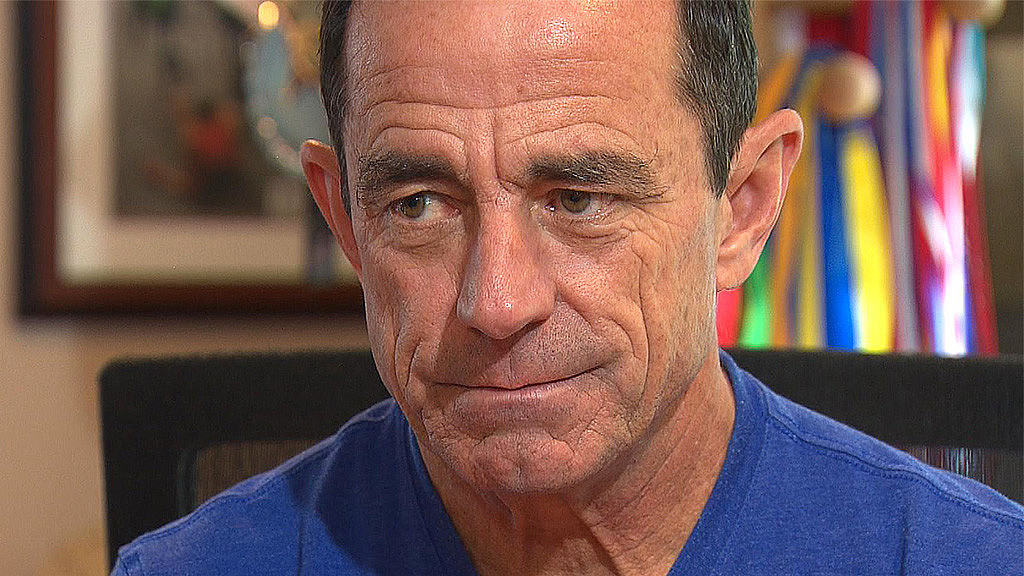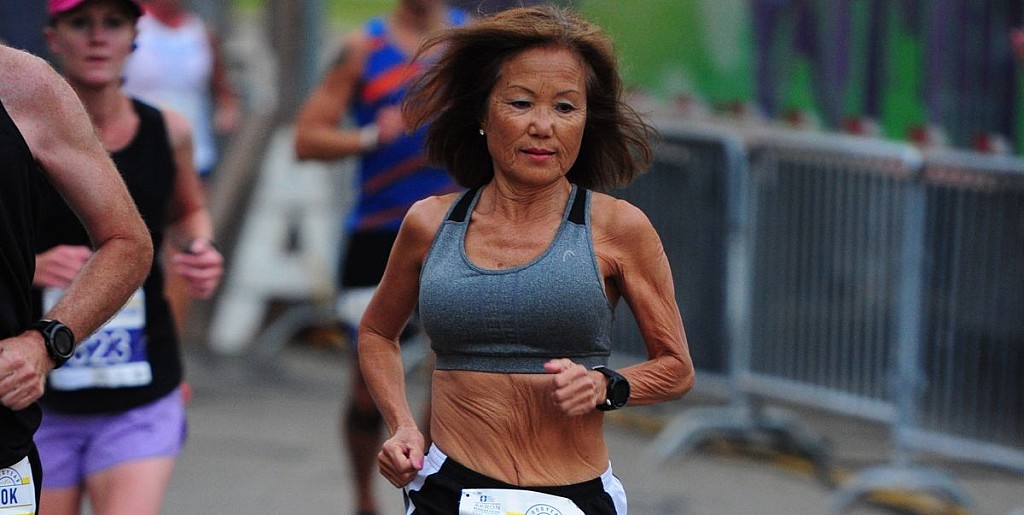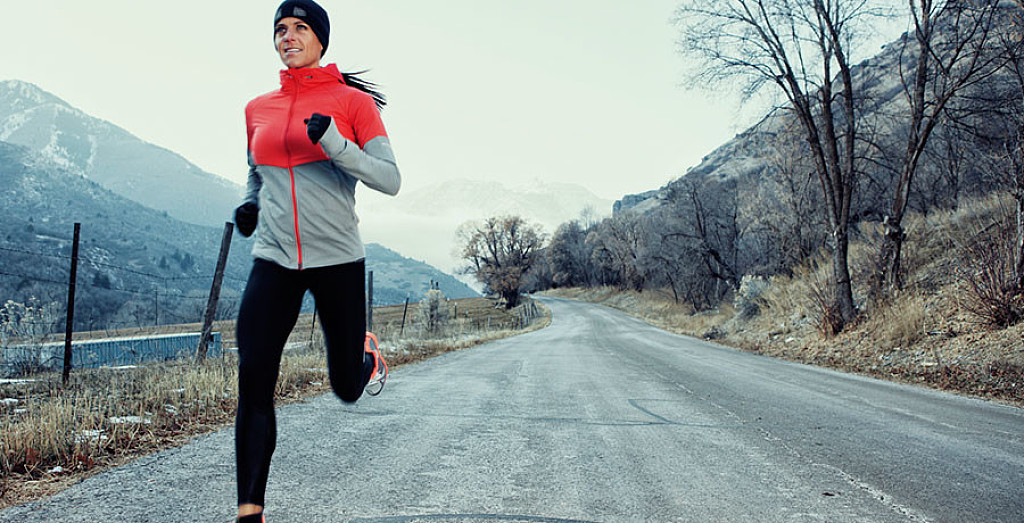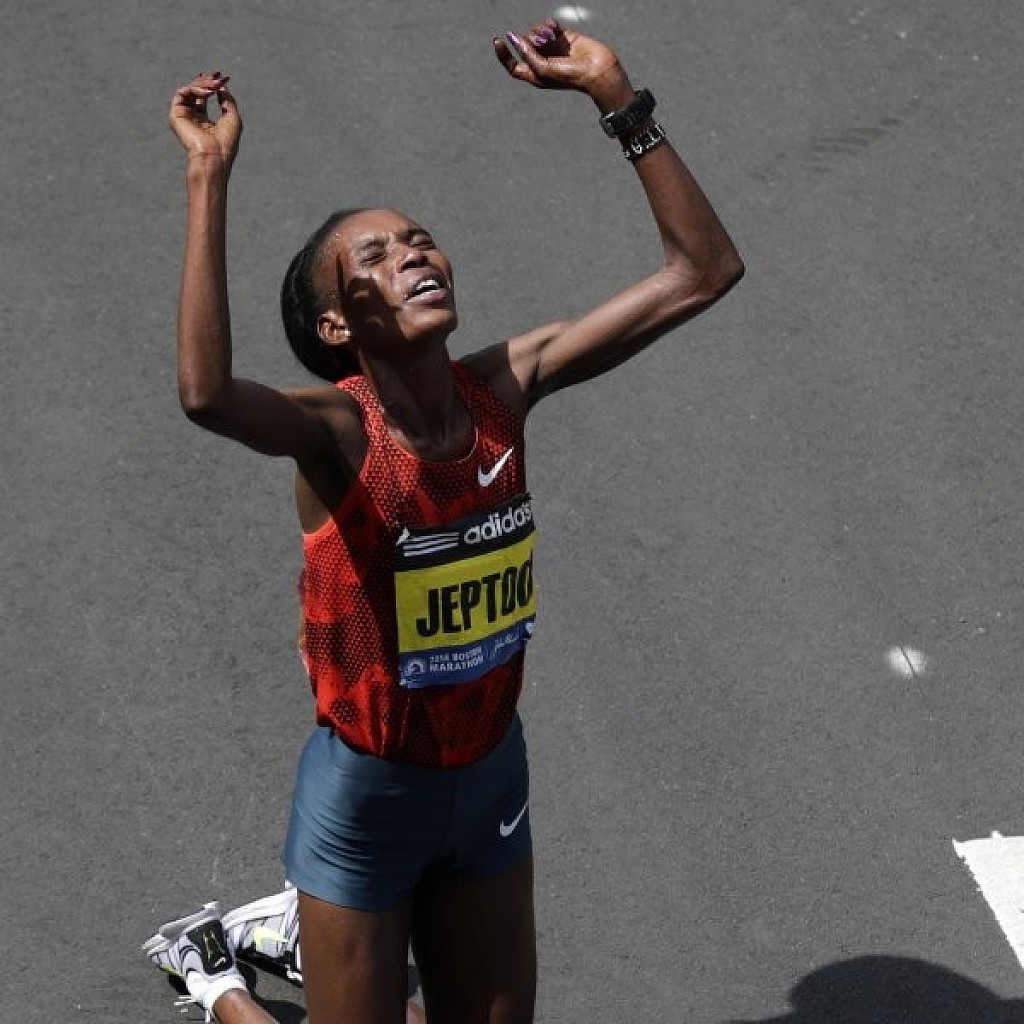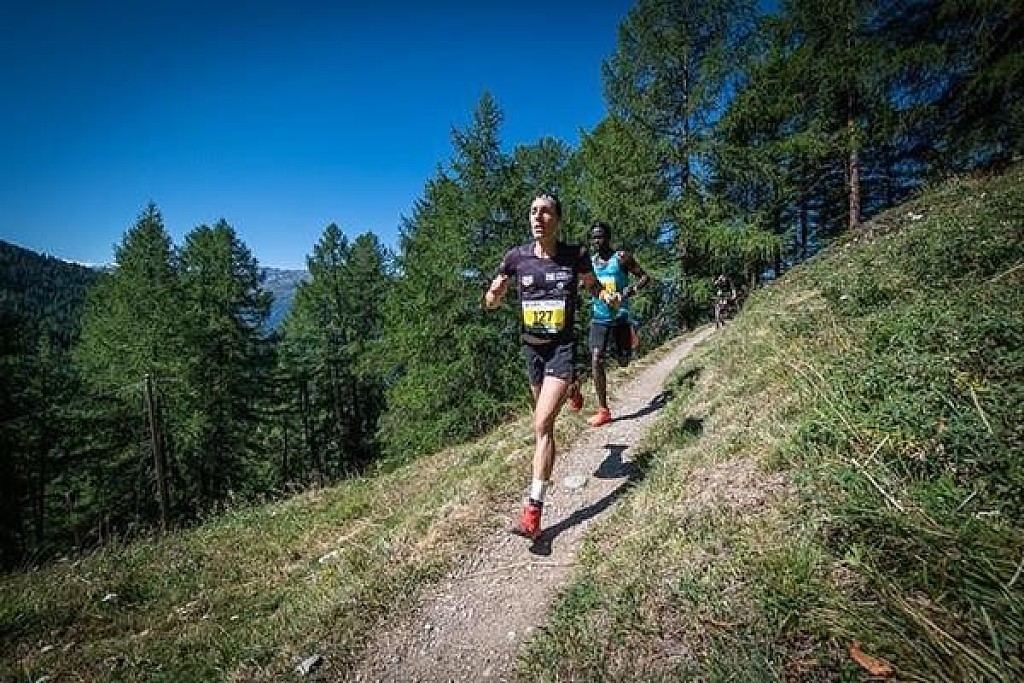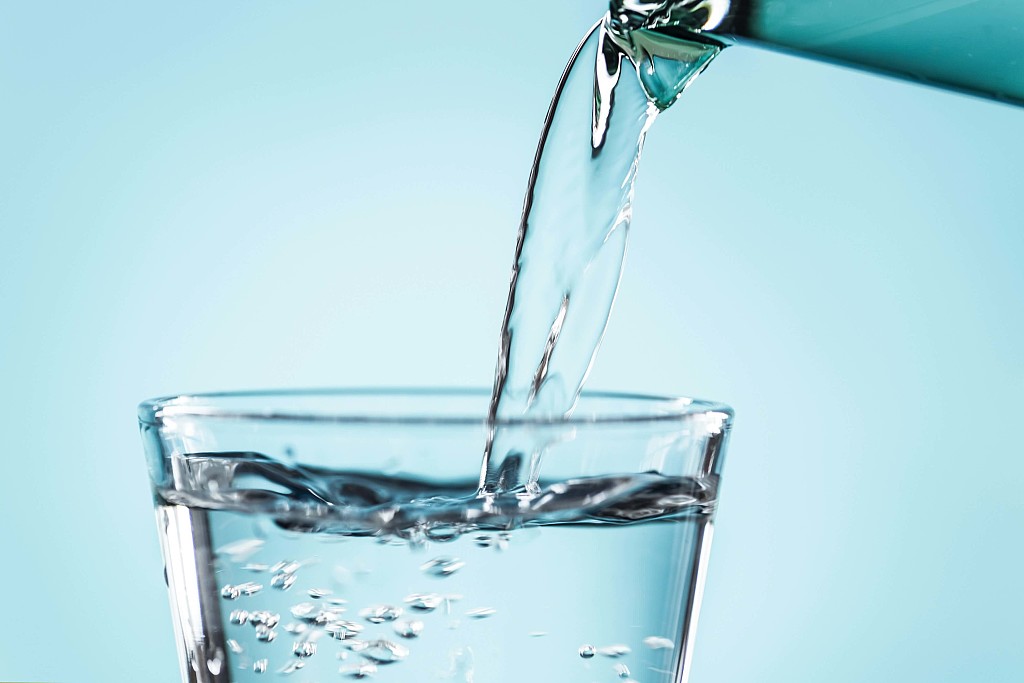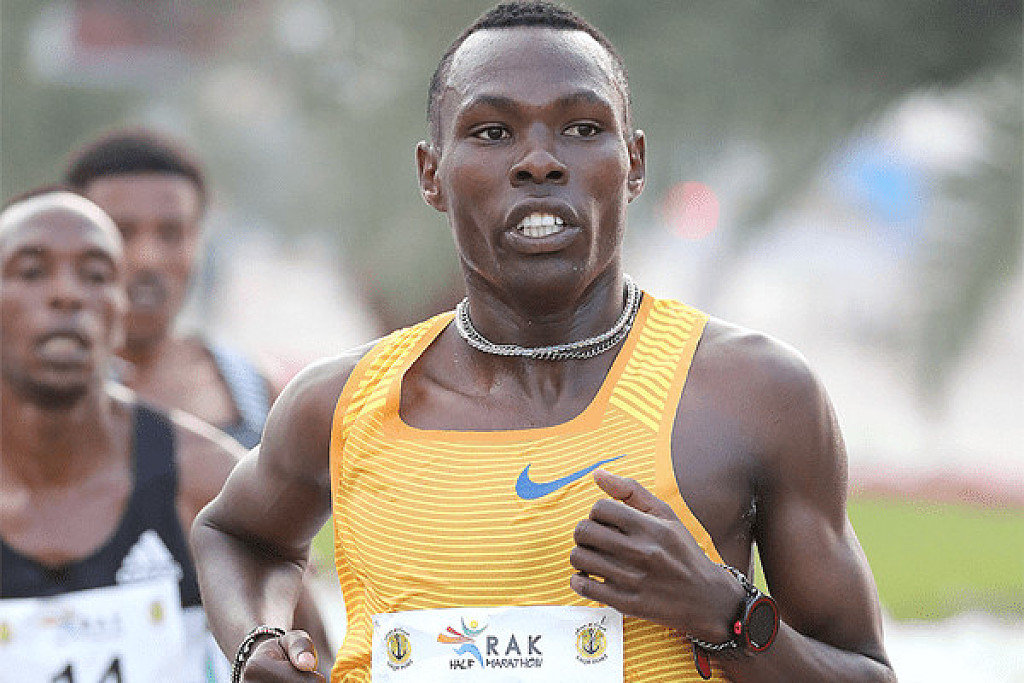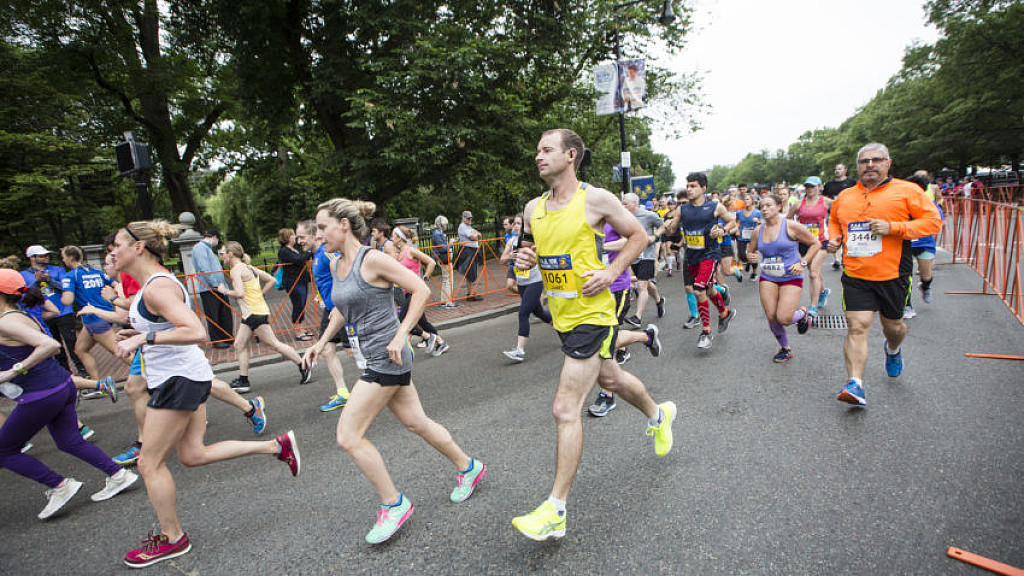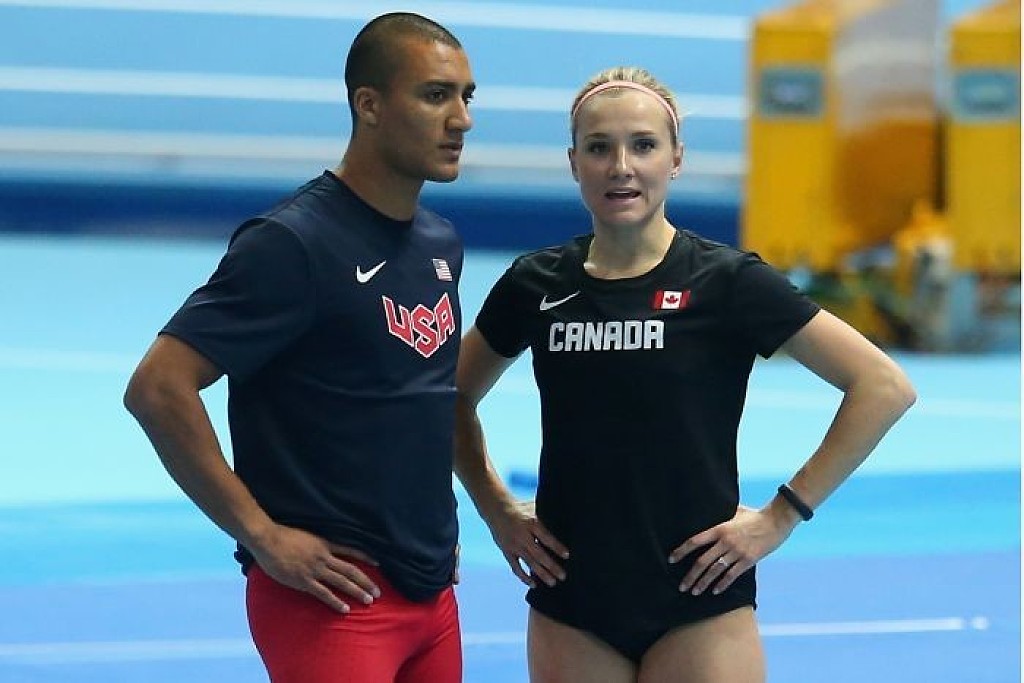Running News Daily
Top Ten Stories of the Week
8/17/2019
These are the top ten stories based on views over the last week.
Even Triple Bypass Surgery does not stop Boston Marathon Director Dave McGillivray from doing his annual birthday run
I have said My Game, My Rules about a million times over the years and today I put it to good use. Even though my 65th birthday (a big one) is not until next week, my work schedule is so crazy that I decided to do my annual birthday run today.
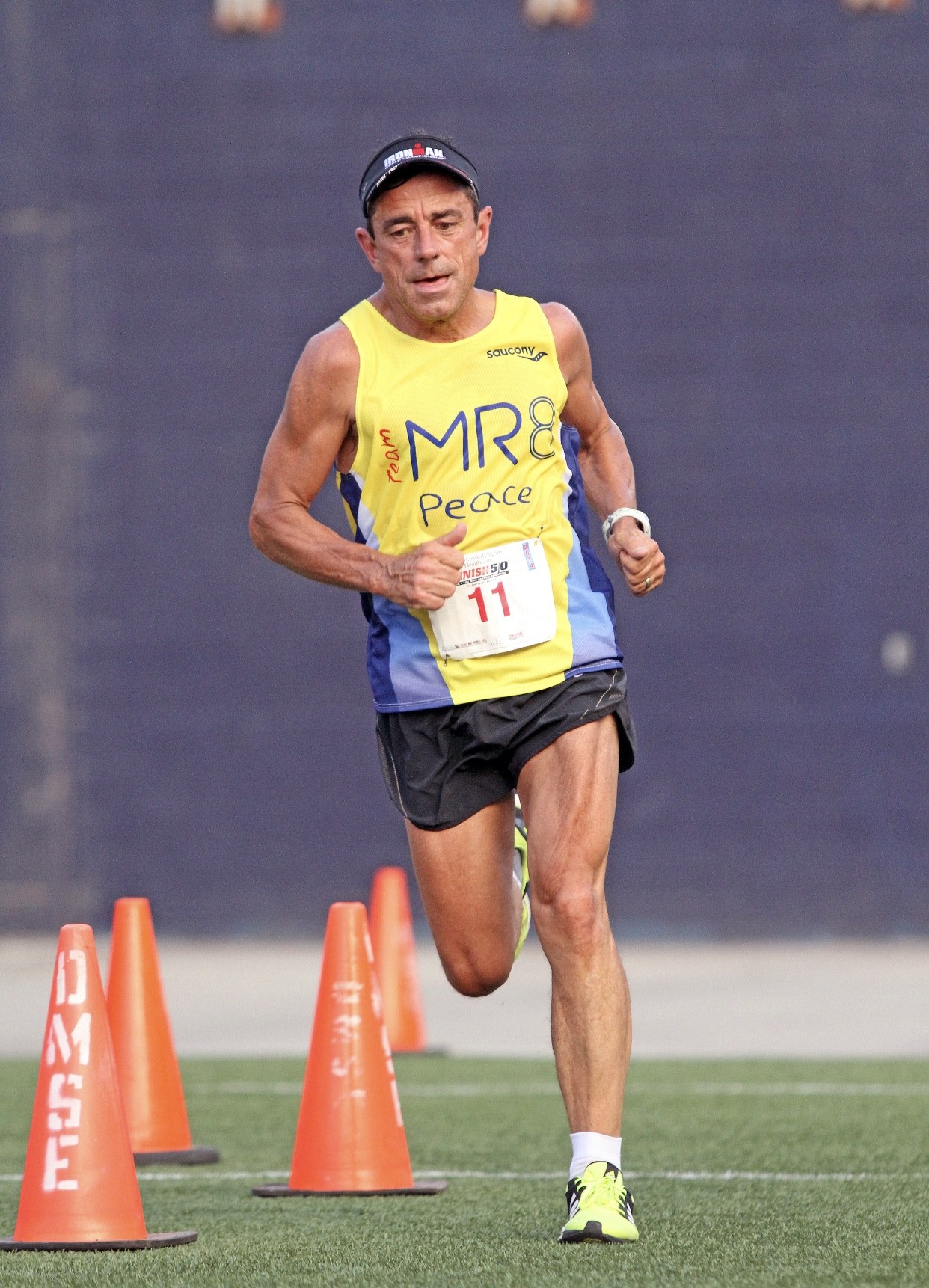
However, I changed the rules this time. Given my triple bypass surgery only 10 months ago and given that I know I have not completely recovered or healed by any means and that I still really do need to be cautious, I decided that I would do a “duathlon” and run a marathon distance (26.2-miles) and then bike the remainder (39-miles) and so that is what I did.
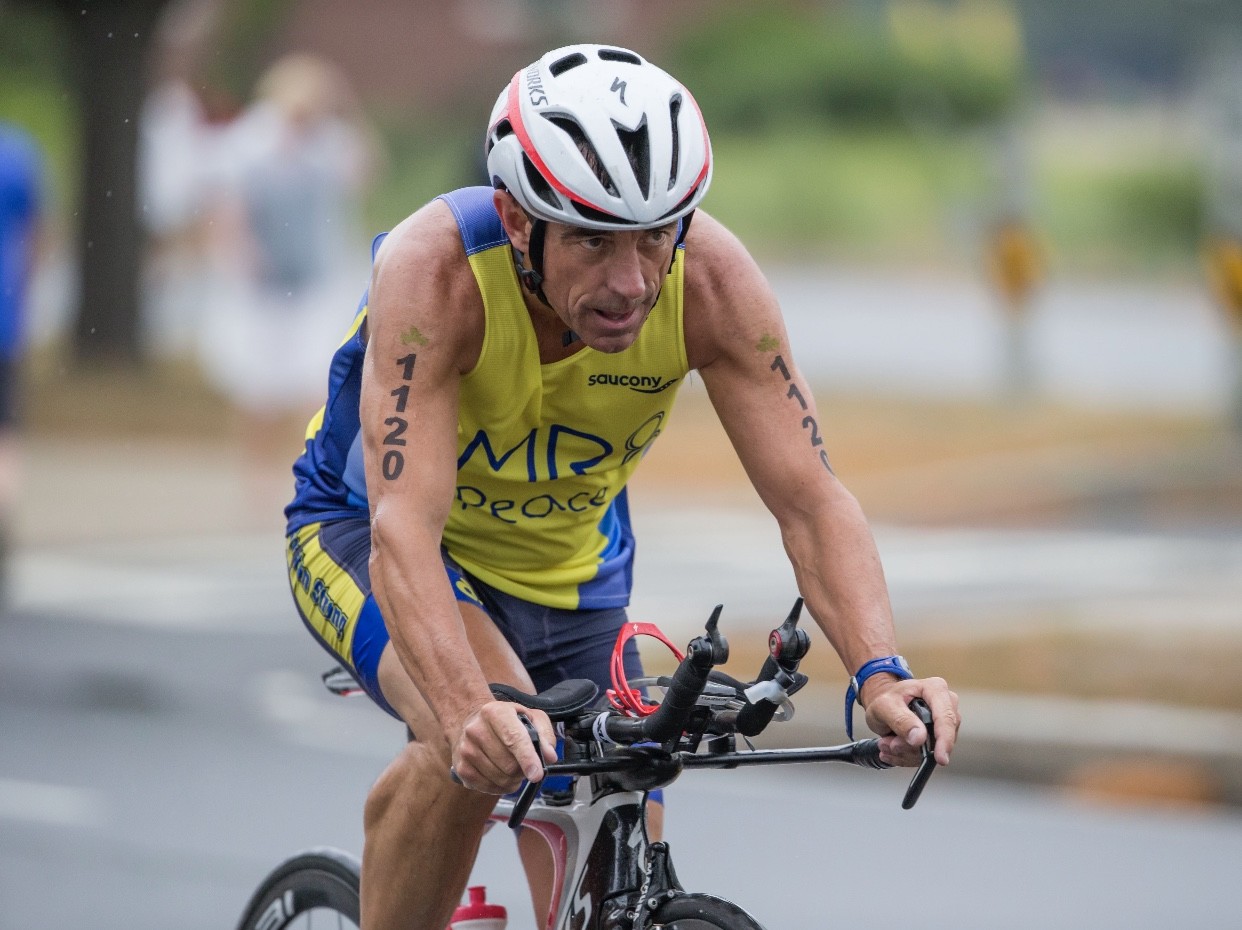
I actually felt pretty good the entire day but I’ve only biked three times this year so that was a little ugly.
Good friends Ron Kramer and Josh Nemzer were very kind and stopped by to do some of it with me. On the one hand, I feel a little disappointed I couldn’t run the entire 65-miles as I have run my birthday run since I was 12-years-old but on the other hand putting it all in perspective,
I just have to feel fortunate I was able to do this. I’ve always said I was a marathoner so my new goal will be to run a marathon on my birthday run for as long as I possibly can and finish up the rest by bike. I think that is a more sane goal going forward...don’t you agree?
Of course, never say never!! And by the way, I just can’t believe I am 65-years-old now...how did that happen?
(Dave McGillivray is the director of the Boston Marathon and several other races including the upcoming Falmouth Road Race happening Sunday.)
(08/12/19) Views: 201Dave McGillivray
71-year old Jeannie Rice, Finishes Akron Half Marathon in Record Time for her age group clocking 1:37:07
The second race in the Akron Children's Hospital Akron Marathon Race Series included a record-setting performance.
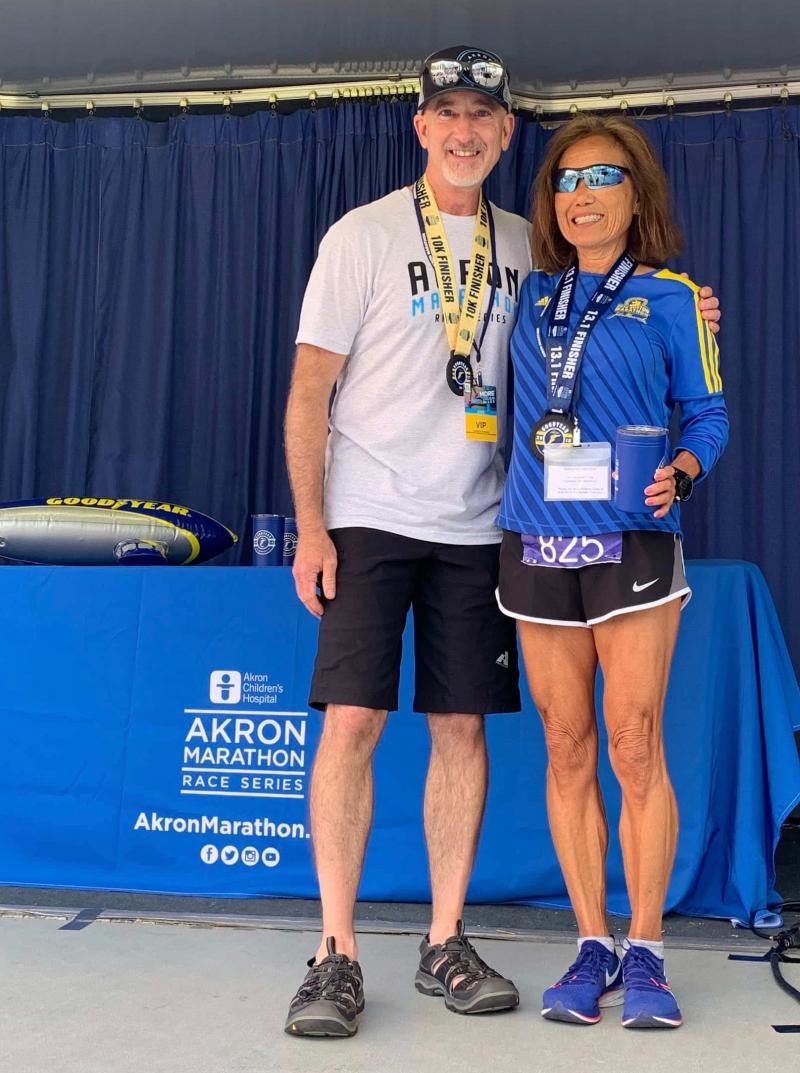
The Goodyear Half Marathon and 10K began at the normally closed-to-the-public Goodyear test track Saturday morning. When the course ended at Goodyear's Global Headquarters, 71-year old Jeannie Rice of Mentor unofficiallly broke the world record for her age group with a half-marathon time of 1:37:07.
"And I see the times and I know I had it. I finish and I told a couple ladies who were there, ‘I did it! I made a world record!’ It was a great feeling."
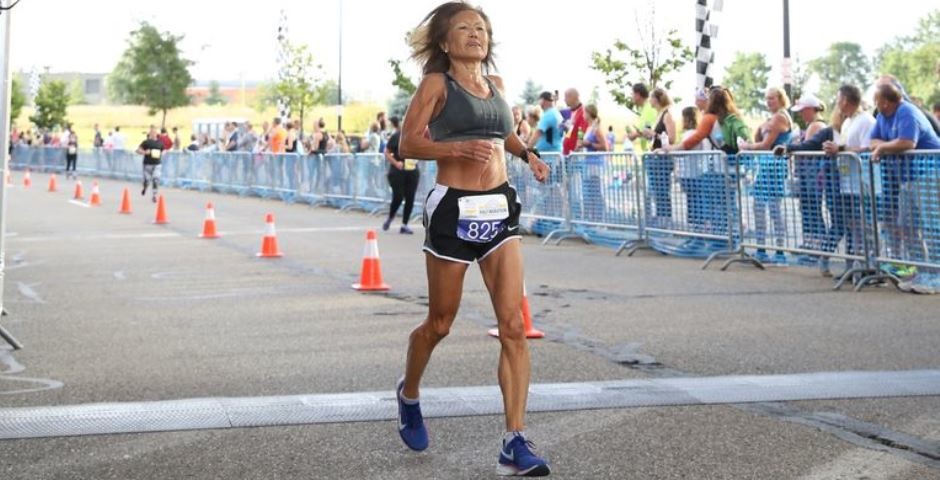
Rice said she's been running for 35 years and has never been impeded by an injury. She's completed a number of races and will run in the full Akron marathon in September. She typically runs 15 miles a week but has upped that to 60 miles per week to prepare for the marathon.
More than 2,500 athletes, both runners and walkers, participated in the event, which was sold out. Dylan Garritano from Akron and Emma McCarron from Mansfield were the respective winners in the men’s and women’s races, finishing at 1:10:20 and 1:23:12. The 10k titles were taken by Nathaniel Hunter Moore from Uniontown and Lydia Hochstein from Cleveland finishing in 33:14 and 39:13.
The Goodyear Half Marathon & 10k welcomed runners from 25 states, with ages 11 to 80 competing.
(08/13/19) Views: 122Sarah Taylor
Runners need to eat wisely to run well and to stay healthy
As a runner, you have two jobs. One is to eat wisely to run well. The other is to stay healthy. That includes sleeping well, eating well, and living well. Wellness was the theme of the 35th Annual Symposium for the more than 7,000 sports dietitians who are members of SCAN, the Sports and Cardiovascular Nutrition dietary practice group (SCANdpg.org) of the Academy of Nutrition and Dietetics. Here are some highlights that offer food for thought and tips for health:
• Health claims made about coconut oil are misleading. They were created by marketing gurus using research based on medium chain triglyceride (MCT) oil, not coconut oil. Coconut oil does contain MCTs, but primarily lauric acid, a MCT that behaves like a long chain saturated fat in terms of digestion and metabolism. Lauric acid raises bad (LDL) cholesterol, inflammation, coagulation and insulin resistance (1).
One tablespoon of coconut oil has 13.5 grams saturated fat. Given the American Heart Association recommends limiting saturated fat intake to less than 7% of total calories, that’s only 15.5 grams a day per 2,000 calories. Runners with high LDL would be wise to use coconut oil only sparingly.

• Does drinking 1 to 2 glasses of wine a day offer positive health benefits? Perhaps not, given there are 25 alcohol-related diseases, to say nothing of links between alcohol and certain cancers, CVD, intestinal issues, injuries from accidents, and suicide. Unless you are among the estimated 35% of Americans who abstain from alcohol, the least harmful way to drink is to limit alcohol to one to two drinks only three to four times a week (not daily). And be sure that one drink is actually just one standard drink (6 oz wine, 12 oz beer, 1.5 oz spirits)—and not the “bartender’s special.”
• Lutein (in egg yolk, spinach, avocado, dark green, and yellow and orange foods) is important for eye health; it curbs age-related macular degeneration. Lutein is also good for your brain and is associated with a reduced risk for dementia. Adults with normal brain function have three times more lutein in their brain than those with cognitive impairment. Enjoy lots of colorful fruits and veggies to consume the recommended lutein intake.

• Knowledge is necessary, but not sufficient, for runners to make sustained lifestyle changes that improve their health. We change our behaviors based on our values. For example, vegetarians generally express concern about the environment and animal welfare. In light of environmental concerns, seems like we need public health campaigns that focus on values, so that more people will eat less meat, waste less food, and choose fewer snacks in single-serve plastic containers.
• Runners can easily lose sleep by going to bed too late, drinking too much coffee, having sleep apnea, and needing to urinate during the night. Sleep loss is associated with accidents, metabolic disorders, weight gain, and hunger (due to increases in the hunger-hormone grehlin). Exercise does not protect against the harmful effects of sleep deprivation. Routinely dragging yourself out of bed in the morning to run might not be a wise plan. Seven hours of sleep a night are recommended to avoid sleep deprivation.
(08/11/19) Views: 93Nancy Clark
The side effects of doping are bad and it is just not worth doing it in the first place
At first, the Kenyan marathoner felt invincible. Racing out beyond the pack, his energy levels buoyed by blood doping, nothing seemed to stand in the way of victory.
"At 35 kilometres, I started getting cramps," the athlete told AFP on condition of anonymity, recalling the 2012 race in Europe where his health starting failing.
"I then started limping from 36-37 kilometres until I crossed the finish line."
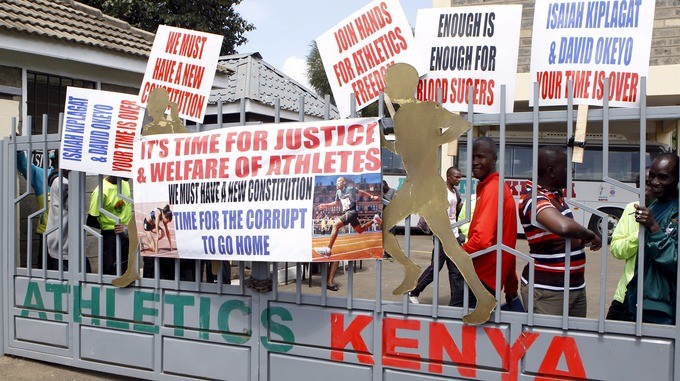
Remarkably, he still finished second and recorded a personal best, returning home from the European race with a silver medal and a tidy pot of prize money.
Elated at the result, and unaware of the health risks associated with erythropoietin (EPO) abuse, the 35-year-old started doping again.
The pain came roaring back, worse than before. EPO boosts the capacity of blood to carry oxygen to the muscles but its misuse can cause a host of serious complications.
"I feel pain in my chest, my muscles are sore and I cough a lot," he said, describing common side effects of EPO, a peptide hormone banned by the World Anti-Doping Authority (WADA) since the early 1990s.
By 2016, he was forced off the track into early retirement, and has not run since.
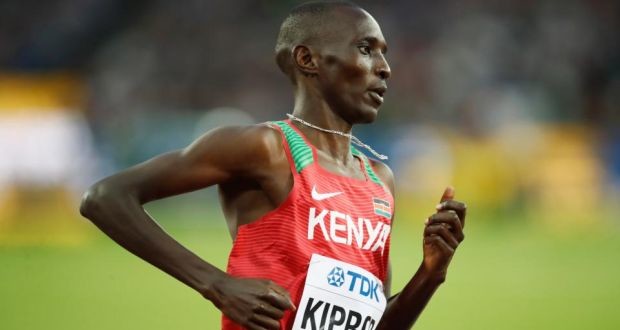
"All I knew, was that once you dope, you end up running well. I never knew there would be such problems," he said.
Kenya barely survived a string of high-profile doping scandals in 2016 that almost saw the African nation celebrated for its distance runners barred from the Rio Olympics.
Since then, Kenya has increased its testing of athletes 10-fold through a new anti-doping authority and tough new laws also threaten users and their dealers with criminal sanctions.
But EPO use has not been stamped out, say Kenyan athletes, suppliers of the substance and anti-doping officials.
There are thousands of professional runners registered with Kenya's athletic federation, but only a handful of elite competitors are regularly screened by the national doping watchdog ADAK.
The lure to rise above the pack is strong.
"When life becomes difficult, you look for an option to make ends meet," said the former Kenyan athlete, who has struggled to make a living after his health deterioration from EPO abuse.
"I was told if I used it, I'd run much better. But now I have missed out on everything."
The Anti-Doping Agency in Kenya (ADAK) has run awareness campaigns under its slogan "Stay Clean, Win Right", trying to educate athletes on the harms of abusing performance enhancing drugs.
"They try, but it's not enough. Not everyone on the field has received the information," the athlete told AFP.
He said athletes themselves needed to spread the word about the dangers of doping.
"I would encourage them not to dope, because even if they made money... they could also damage their bodies."
(08/12/19) Views: 70Kilian Jornet of Spain and Switzerland's Maude Mathys smashed the respective course records at the Sierre-Zinal in Switzerland, the fifth race in the 2019 World Mountain Running Association on Sunday
Jornet clocked 2:25:35 over the 31km course to break the 2:29:12 record set by Jonathan Wyatt in 2003. Mathys was even more dominant, clocking 2:49:20 to clip more than five minutes from the previous mark of 2:54:26 set by Czech Anna Pichrtova in 2008.
The iconic race, which starts in the Valais town of Sierre and climbs to the village of Zinal, has a total ascent of 2200m and 1100m of descent and features a course offering views of five of the area’s 4000-meter peaks, lending it the nickname, the "Five 4000s Race”.

Jornet broke away early, soon after leaving Sierre and had built a two minute advantage over 2016 winner Petro Mamu by the Ponchette checkpoint seven kilometres into the race. Between the Chandolin and Hotel Weisshorn checkpoints, Jornet eased the pace, allowing Mamu to reduce the gap to 1:27.
From Weisshorn, at 2337m the course's highest point, the race once again picked up steam. The key for Jornet was his powerful performance on the uphill sections, normally the weaker part of his race. While Mamu continued to chip away at the lead, Jornet held on, beating the Eritrean by 42 seconds to take his seventh victory at the event. Mamu clocked 2:26:17, also well inside the previous record.
Jim Walmsley of the US, who last May clocked a world best over 50 miles (80.46km), rounded out the podium in 2:31:52, a solid performance in his European trail and mountain running debut. Juan Carlos Carrera of Mexico and Robbie Simpson of Great Britain completed the top five, clocking 2:32:52 and 2:33:55, respectively.
Briton Andrew Douglas finished sixth to solidify his lead in the WMRA World Cup standings. With 450 points, the Briton has pieced together an unassailable lead with two races remaining in the series.
Mathys, who raced to the European title last year, dominated the women's contest, padding her lead with each passing kilometre before beating compatriot Judith Wyder by exactly five minutes. Wyder's 2:54:20 was also faster than the previous course record.
Italy's Silvia Rampazzo was third in 2:56:17 to finish off the podium. New Zealander Ruth Croft edged Anais Sabrie of France for fourth by just two seconds in 3:01:56.
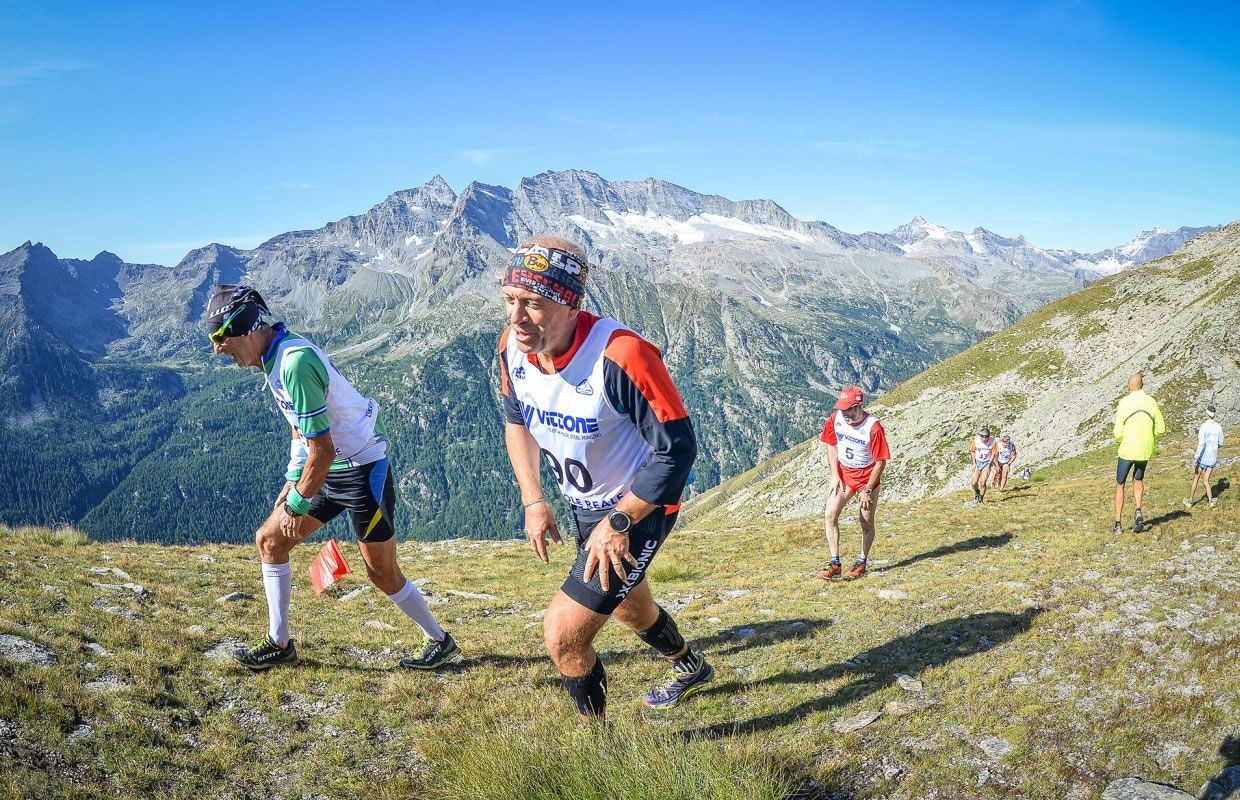
Irishwoman Sarah McCormack finished 12th to up her point tally in the World Cup standings to 305. Injury forced Kenyan Lucy Wambui, one of the pre-race favorites, out early on, solidifying McCormack's chances for her overall World Cup title bid.
The WMRA World Cup resumes on 14 September at the Drei Zinnen in Sexten, in the heart of Italy's Dolomites before its traditional conclusion at the Smarna Gora race just outside the Slovenian capital Ljubljana on 12 October.
(08/12/19) Views: 65IAAF
Why Drinking Water All Day Long Is Not the Best Way to Stay Hydrated
Dehydration is a drag on human performance. It can cause fatigue and sap endurance among athletes, according to a 2018 study in the journal Frontiers in Physiology. Even mild dehydration can interfere with a person’s mood or ability to concentrate.
Water is cheap and healthy. And drinking H2O is an effective way for most people to stay hydrated. The National Academy of Medicine recommends that adult women and men drink at least 91 and 125 ounces of water a day, respectively. (For context, one gallon is 128 fluid ounces.) But pounding large quantities of water morning, noon and night may not be the best or most efficient way to meet the body’s hydration requirements.
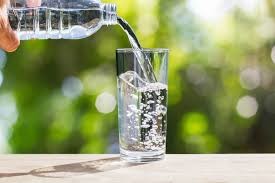
“If you’re drinking water and then, within two hours, your urine output is really high and [your urine] is clear, that means the water is not staying in well,” says David Nieman, a professor of public health at Appalachian State University and director of the Human Performance Lab at the North Carolina Research Campus. Nieman says plain water has a tendency to slip right through the human digestive system when not accompanied by food or nutrients. This is especially true when people drink large volumes of water on an empty stomach. “There’s no virtue to that kind of consumption,” he says.
In fact, clear urine is a sign of “overhydration,” according to the Cleveland Clinic. And some of the latest research supports Nieman’s claim that guzzling lots of water is not the best way to stay hydrated.
For a 2015 study in the American Journal of Clinical Nutrition, researchers compared the short-term hydration effects of more than a dozen different beverages—everything from plain water and sports drinks to milk, tea, and beer, to a specially formulated “rehydration solution.” Based on urine analyses collected from the study volunteers, the researchers concluded that several drinks—including milk, tea, and orange juice, but not sports drinks—were more hydrating than plain water. (Lager was a little less hydrating than water, but a little better than coffee.)
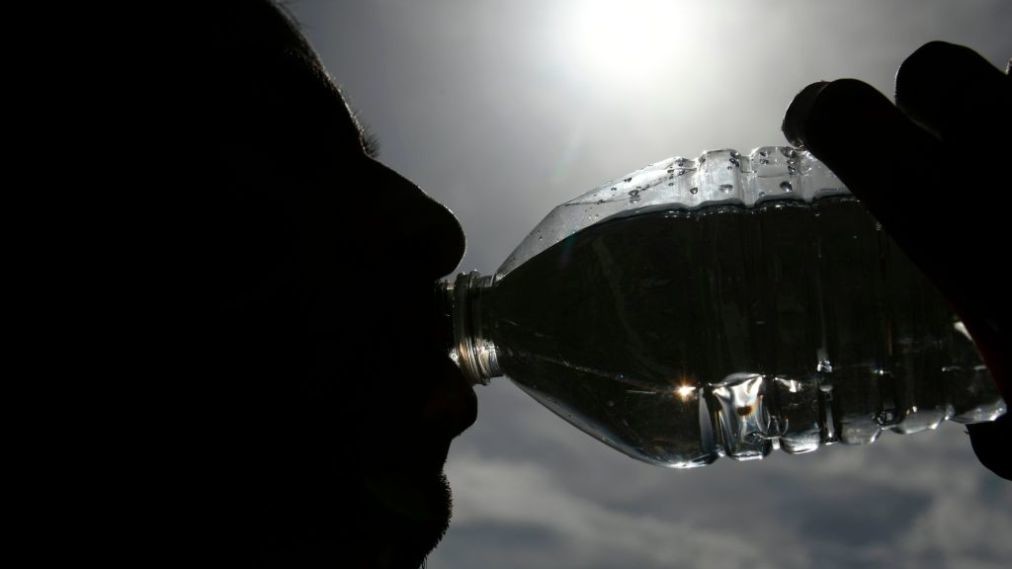
Of course, no one’s suggesting that people dump water in favor of milk and OJ. Water is still hydrating. So are sports drinks, beer, and even coffee, to some extent. But the authors of the 2015 study wrote that there are several “elements of a beverage” that affect how much H2O the body retains. These include a drink’s nutrient content, as well as the presence of “diuretic agents,” which increase the amount of urine a person produces. Ingesting water along with amino acids, fats and minerals seems to help the body take up and retain more H2O—and therefore maintain better levels of hydration—which is especially important following exercise and periods of heavy perspiration.
“People who are drinking bottles and bottles of water in between meals and with no food, they’re probably just peeing most of that out,” Nieman says. Also, the popular idea that constant and heavy water consumption “flushes” the body of toxins or unwanted material is a half-truth. While urine does transport chemical byproducts and waste out of the body, drinking lots of water on an empty stomach doesn’t improve this cleansing process, he says.
In some rare cases, excessive water consumption can even be harmful. “In athletes or people who are exercising for hours, if they’re only drinking water, they can throw out too much sodium in their urine, which leads to an imbalance in the body’s sodium levels,” explains Nieman, who has spent a chunk of his career investigating exercise-related hydration. Doctors call this imbalance “hyponatremia,” and in some cases it can be deadly. In this scenario, sports drinks and other beverages that contain nutrients and sodium are safer than plain water.
While hyponatremia and excessive water consumption aren’t big concerns for non-athletes, there are better ways to keep the body and brain hydrated than to pound water all day long. Sipping water (or any other beverage) a little bit at a time prevents the kidneys from being “overloaded,” and so helps the body retain more H2O, Nieman says.
Drinking water before or during a meal or snack is another good way to hydrate. “Drinking water with amino acids or fats or vitamins or minerals helps the body take up more of the water, which is why beverages like milk and fruit juice tend to look pretty good in these hydration studies,” he says. Some of his own research has found that eating a banana is better than drinking a sports beverage when it comes to post-exercise recovery. And he says eating almost any piece of fruit along with some water is going to aid the body’s ability to take up that H2O and rehydrate.
(08/10/19) Views: 63Kenya's Bedan Karoki and Stephen Kiprop will skip the World Championships to focus on road races
Kiprop illustrated fine form in 2018, winning three half-marathon races in the Netherlands and Czech Republic, and finishing fifth in Valencia clocking 59:21.
Winning the 2019 Ras Al Khaimah half marathon clocking 58 minutes and 42 seconds, fastest in the world this year, he is joint sixth on the world all-time list in February.
Now the 19-year-old will give the World Championships a bye to compete at the Valencia half marathon on October 27 in Spain.
The other elite runner Karoki, the silver medalist from Tokyo Marathon, told Xinhua from Nyahururu on Friday that he will instead compete at the half marathon in Argentina.
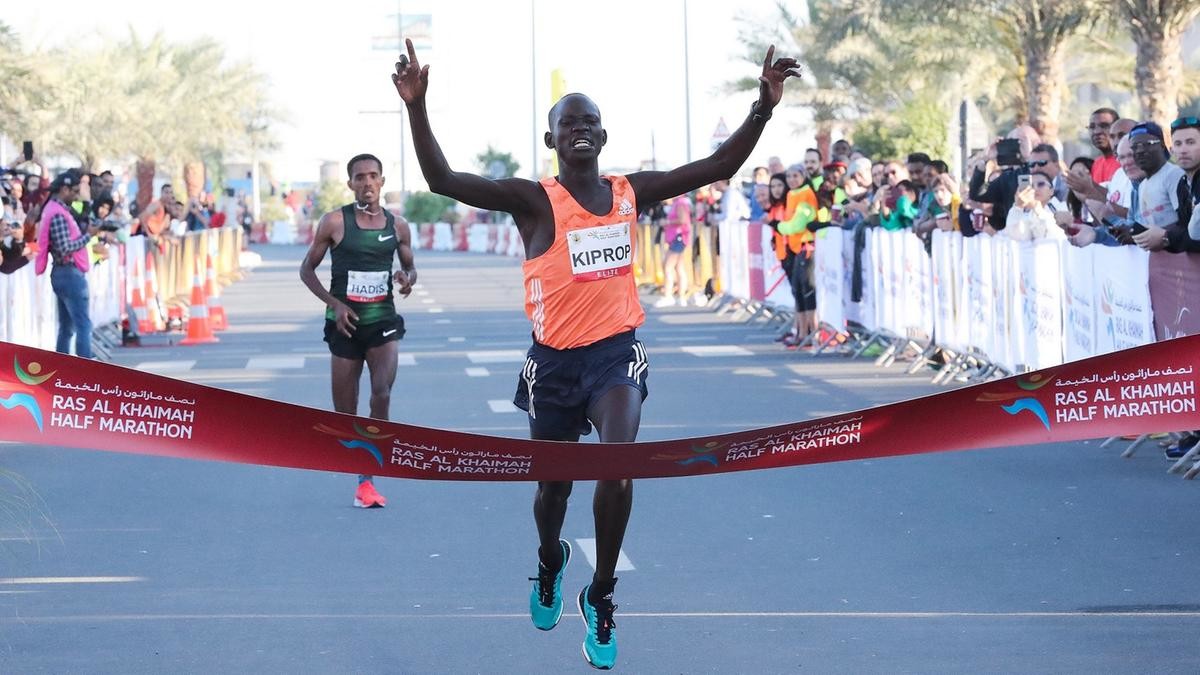
"I have committed myself to run a half marathon in Argentina and I have to honor it," Karoki said.
"I have had my chance with the Kenya team and the World Championships in Doha will not be on my schedule this time round," he said.

Kenya has failed to win a gold medal in the 10,000m race at the World Championships since Charles Kamathi won in Edmonton, Canada back in 2001.
Karoki, a silver medalist at the 2016 World Half Marathon and 2015 World Cross Country, said he is building up for Chicago marathon by running half marathons. He is also eyeing a slot in Kenya's marathon team for next year's Tokyo Olympics.
(08/10/19) Views: 63Alasdair Mcilroy will be taking part in his first half marathon dedicating every step to his best friend who died from cancer last year
Alasdair Mcilroy is taking on the Scottish Half Marathon in Edinburgh next month in aid of Cancer Research UK and in memory of pal Des Devine who died aged just 54 last October.
The pair were firm friends for decades sharing a love for sports including golf, rugby, rallying, cricket and football.
They were both members of Hawick Opera Company and when Des married his wife Sasha at Heiton’s Roxburghe Hotel in 2008, Alasdair was best man.
“Des had an immeasurable impact on so many lives including my own and I was honored to be his best man on his wedding day,” Alasdair, 47, said.
“His zest for life was all too obvious with every single thing he did. He loved sport and socializing.

“He took challenges on with positivity and as long as people continue to remember him, speak of him and love him then Des will never truly be gone. His battle with cancer was faced up to with great dignity.
“Through his fight, he was still more interested in everyone else’s life and plans.
“The finish line of the Scottish half marathon will be an emotional moment of personal reflection and I’ll dedicate my efforts to Des.”
Des, who moved from the Borders to Inverness in 2004, was diagnosed with bowel and liver cancer in October 2013, five weeks before his 50th birthday. After two major operations and chemotherapy he was well enough to return to his love for sport, traveling, music and drama by summer 2014.

A talented musician, he was a singer with the Rooty Ma Toot Big Band and also a keen member of the Inverness Musical Theater company and the Florians drama club.
But last year cancer spread to his bones and he died at the Highland Hospice, Inverness with his wife Sasha by his side.
(08/12/19) Views: 63Kathryn Wylie
Massachusetts runners are the fastest marathoners in the United States
When it comes to marathons, it's hard to top Massachusetts. It's home to the Boston Marathon, arguably the world's most famous 26.2-mile race.
Now, a new study claims the state's marathoners are the fastest in the country.
The study was completed by a Danish research team from RunRepeat. Billed as the largest survey of race results in history and conducted in collaboration with the IAAF, its conclusions are based on data from more than 107 million race results from 1986 to 2019.
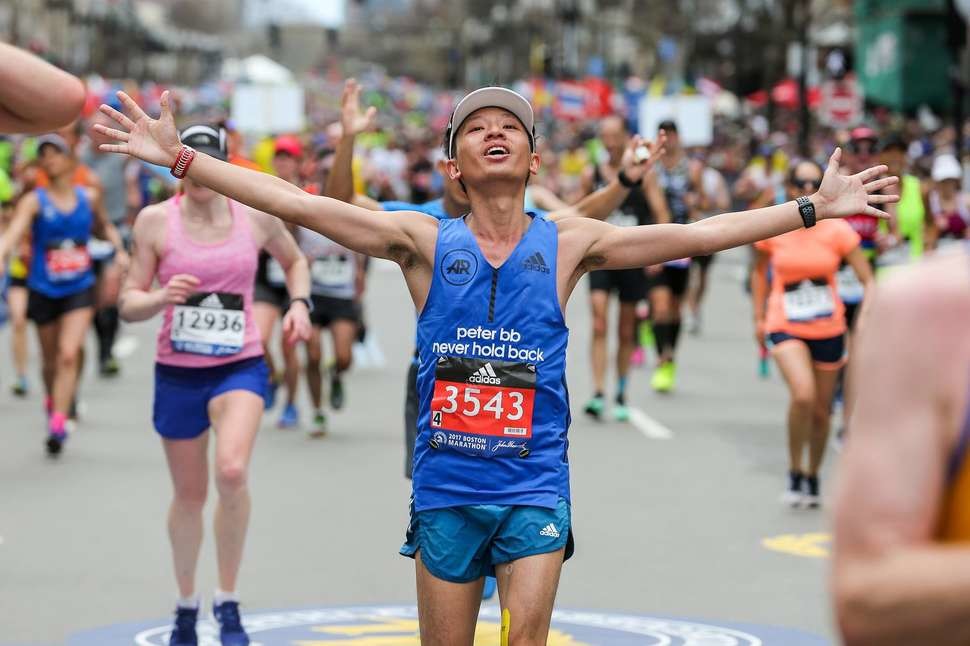
Massachusetts runners have an average marathon time of 4 hours, 4 minutes, 20 seconds, according to the study. That's nearly 14 minutes quicker than the second fastest state, Washington, which has an average of 4:18:09. Indiana ranks third at 4:18:57. For comparison, the report says Alaska (5:30) Florida (5:33) and Hawaii (6:16) are the three slowest states overall.
The average marathon time for Massachusetts women is 4:15:01, which is faster than the average time for men in more than 30 states. Massachusetts men average 3:54:31 for the marathon, according to the new study. Again, that's a big jump in time over runner-up Washington, whose men average 4:05:56.
The report is based on residency. If a runner from Massachusetts runs the New York Marathon, the result is attributed to Massachusetts.
The study doesn't explain why Massachusetts runners are faster than the rest of the country, but Danny McLoughlin of RunRepeat has a theory.
"I think that the goal of the Boston Marathon qualifying time acts as an inspiration to the people of Massachusetts," he said. "To have such a prestigious marathon in your own state that you have to reach a certain level to qualify for can act as a target for a lot of local runners and push them to a level they would not have achieved otherwise without this target hanging over them."
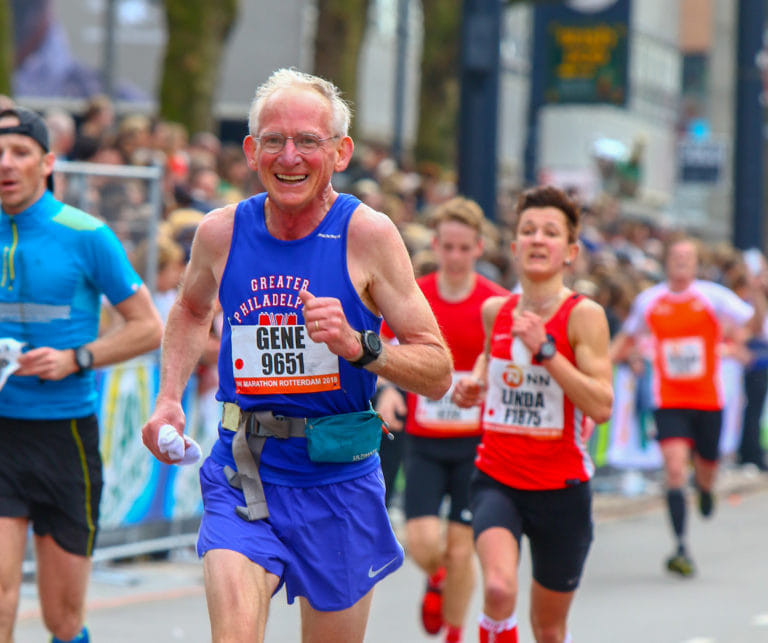
New Mexico ranks 44th overall in the study but its runners are getting faster. They shaved more than 27 minutes off their average marathon times over the last decade. It's one of 12 states where average times have improved over the last decade. The rest have slowed down.
New York leads the way when it comes to marathon participation, accounting for close to 14% of all American marathoners. Massachusetts is fifth at just under 6%. Overall, participation in marathons in the U.S. peaked in 2014, with 545,390 people running 26.2 miles races.
While the overall number of marathoners has declined in the last five years, the number of women running marathons has been on the rise, according to the study. In Florida and Illinois, the two states that have the most female marathoners, there are actually more women running the distance than men.
Runners from all 50 states participate in the Boston Marathon every year, where these finish times have a practical application. Marathon organizers have tightened general qualifying standards by 5 minutes across the board for the 2020 race. A 40-year-old man now has to run 3:10 to qualify. A 40-year-old woman has to run 3:40.
Over the last few years, just having a qualifying time isn't good enough to get into the iconic race, which has a cap on participants. According to Runner's World, more than 7,000 qualified runners were not accepted into this year's race. You had to be nearly 5 minutes faster than your age and gender qualifying time to get a coveted bib.
(08/13/19) Views: 59Alex Ashlock
Olympic decathlon champion Ashton Eaton and indoor pentathlon champion Brianne Theisen-Eaton have been named as ambassadors for the IAAF World Athletics Championships Doha 2019
With 50 days to go until the IAAF’s showpiece event gets under way in the Qatari capital, the Eatons are looking forward to 10 days of enthralling athletics action from 27 September until 6 October in what will be their first World Championships as spectators.
For them, the highlight will fall on 2-3 October when – for the first time ever at an IAAF World Championships – the decathlon and heptathlon will be held concurrently, creating two days of excitement for fans of combined events. The 2020 Tokyo Olympic Games schedule will also follow this approach.
The champion pair retired after the 2016 Olympic Games, where Eaton won decathlon gold and Theisen-Eaton took the heptathlon bronze medal. But both have continued to follow the sport in recent years.
Theisen-Eaton, who earned world silver medals in the heptathlon in 2013 and 2015, is looking forward to seeing the revamped schedule in action as it provides a new showcase for the combined events.
"Athletics holds such a special place in my heart and I am truly so excited and honored to be an IAAF Ambassador, and to be a part of the IAAF World Athletics Championships Doha 2019," she said. "This outdoor World Championships will be unique as it will be the first time the multi event athletes are competing together on the same two days.
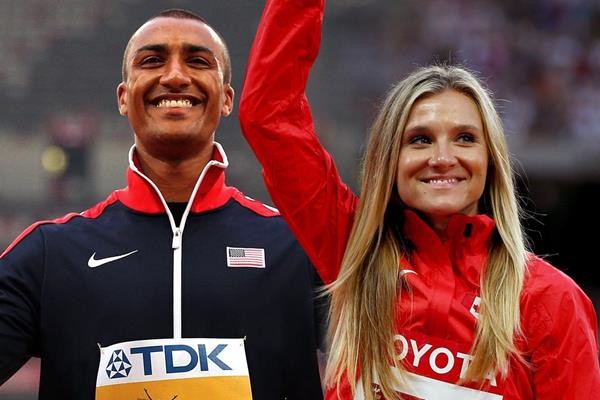
"Ashton and I had the opportunity to compete side by side at both the 2014 and 2016 World Indoor Championships, and the energy created from sharing that experience together was unlike any other championship. To do this at an outdoor world championship is really special, and I’m looking forward to watching the camaraderie between the heptathletes and decathletes."
Eaton, winner of the 2013 and 2015 world decathlon titles, says the combined events will be one of the highlights of the championships.
"Some of my most memorable and transformable experiences as a person and athlete have been at the IAAF World Championships - from Berlin in 2009, to Daegu in 2011, to Beijing in 2015," said the two-time Olympic champion. "I’m excited and honored to attend Doha as an ambassador of athletics.
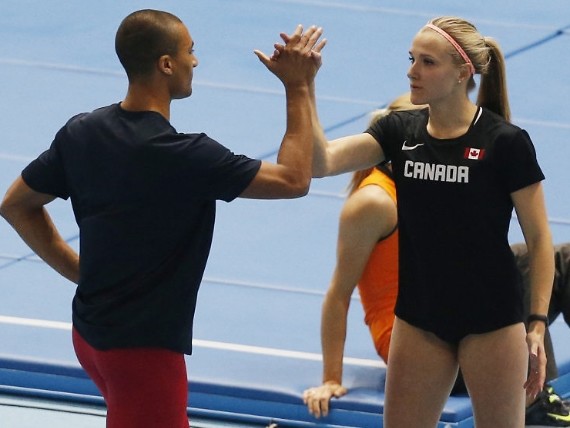
"This year there is anticipation for great performances in many of the single events. But in my opinion the combined events will be the marquee competition of the championships because for one, the men and women will be on the field at the same time making for a fun and lively atmosphere of sport, and two, the caliber of the athletes is arguably the best in history, both veteran and novice.
"I believe we’re witnessing the development of the best athletes of all time."
(08/09/19) Views: 57IAAF


